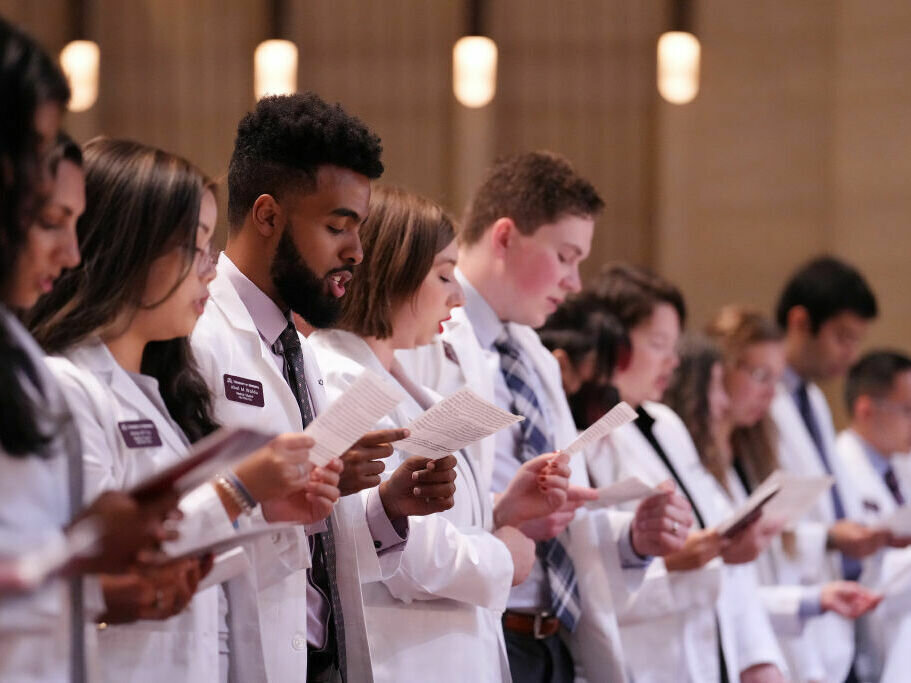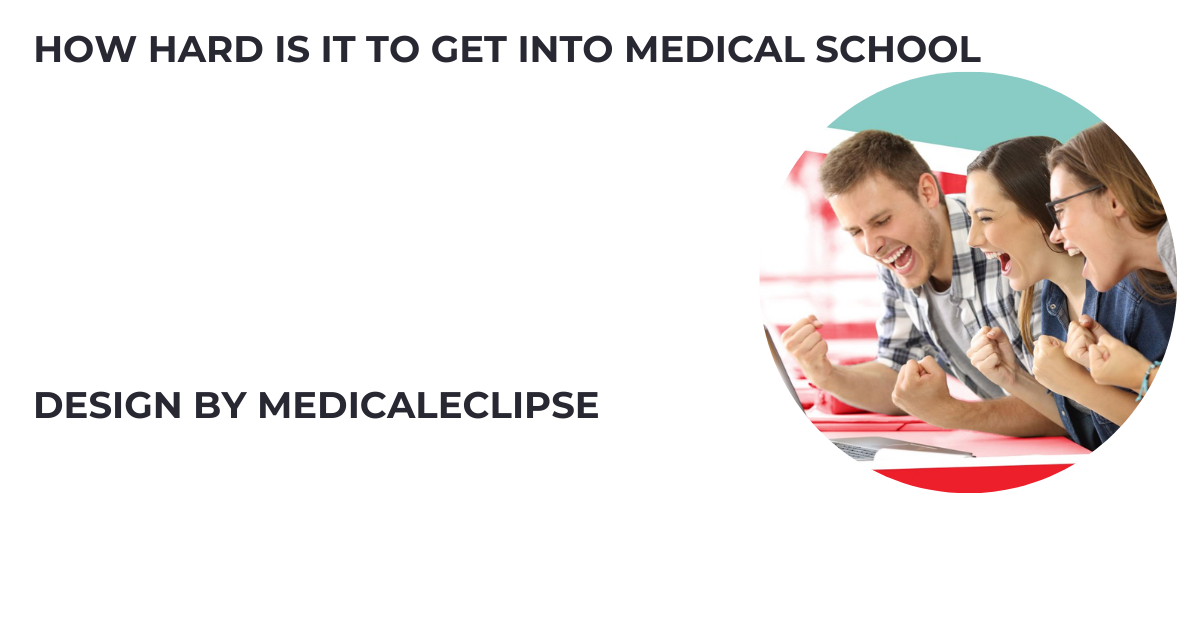Getting into medical school is highly competitive, requiring a strong GPA, MCAT score, clinical experience, and a compelling personal statement.
In this article, we’ll explore how difficult it is to get into medical school, the application process, and tips to help you succeed.
What Makes Medical School Admissions So Competitive?

The medical school admissions process is rigorous due to several key factors:
Limited Number of Spots:
There are far fewer medical school spots available than there are applicants. According to the Association of American Medical Colleges (AAMC), in 2021, over 53,000 applicants competed for just 22,000 spots in U.S. medical schools.
High Academic Standards:
Medical schools look for applicants who have excellent academic records. This includes high GPAs, especially in challenging science courses, and strong performance on the Medical College Admission Test (MCAT). Many successful applicants have GPAs in the 3.7–4.0 range and MCAT scores of 510 or higher (out of 528).
Comprehensive Application Process:
Beyond academics, medical schools want well-rounded candidates. This includes strong letters of recommendation, a compelling personal statement, extracurricular activities, clinical experience, research, volunteer work, and leadership positions.
Holistic Review:
Medical schools conduct a “holistic review” of applicants, considering not only academic achievements but also personal qualities such as empathy, integrity, and resilience. They seek candidates who demonstrate the potential to become compassionate, skilled, and dedicated physicians.
Competition from Global Applicants:
Many medical schools accept applications from international students or applicants from other countries. This increases the pool of applicants, further intensifying competition.
Also Read: How To Become A Medical Scribe – Requirements, Training, and Salary!
What Are the Key Requirements for Getting into Medical School?
Undergraduate Education:
You need a bachelor’s degree, typically with a focus on the sciences. Medical schools often recommend courses in biology, chemistry, physics, and math.
While some students pursue a pre-med track, others choose diverse majors like humanities or social sciences. However, they still need to complete the required science courses.
High GPA:
A competitive GPA is critical, especially in science coursework. Medical schools often look for a GPA above 3.7, although some schools may accept applicants with lower GPAs if they have other strong qualifications.
MCAT Scores:
The MCAT is a standardized test that assesses knowledge in areas such as biology, chemistry, physics, psychology, and critical thinking. High scores are essential for competitive applications.
Preparing for the MCAT can take months, so it’s important to study extensively and practice regularly to achieve a score that aligns with the schools you’re applying to.
Tips for Improving Your Chances of Acceptance:

Start Early:
Begin preparing for medical school early in your undergraduate years. Focus on excelling academically, gaining clinical experience, and participating in extracurricular activities.
Consider doing research and shadowing doctors early in your studies to build a solid foundation for your application.
Do Well on the MCAT:
Take your MCAT preparation seriously. Start studying months before the exam and consider enrolling in prep courses if needed.
Regular practice with timed tests will help you become familiar with the exam format and improve your test-taking strategies.
Gain Clinical Experience:
Engage in volunteering or internships in healthcare settings, such as hospitals, clinics, nursing homes, or with healthcare professionals.
Shadowing physicians and working directly with patients will strengthen your application and help you determine whether medicine is the right path for you.
Seek Out Research Opportunities:
Many medical schools value research experience, especially in fields related to medicine. Participating in scientific research demonstrates critical thinking skills and the ability to contribute to advancing healthcare.
Focus on Your Personal Statement:
Craft a thoughtful and unique personal statement that tells your story, explains your motivations for becoming a doctor, and highlights what sets you apart.
Make sure to revise and seek feedback from mentors, advisors, or others who can help you present your best self.
Network and Seek Mentorship:
Building relationships with professors, physicians, and other professionals in the medical field can provide guidance, insight, and support during the application process.
Mentors can offer invaluable advice and help you navigate the challenges of applying to medical school.
How to Increase Your Chances If You Don’t Get Accepted the First Time?
Rejection from medical school is not the end of the road. Many successful doctors have faced setbacks before achieving their goals. If you don’t get accepted on your first attempt, consider the following steps to improve your application for the next cycle:
Take Time to Strengthen Your Application:
If you need to improve your GPA or MCAT scores, take additional courses or retake the exam to show growth and readiness for medical school.
Gain more clinical experience, leadership roles, or research opportunities.
Also Read: How To Get Medical Marijuanas Card Pa – How to Apply and What to Expect”!
Reflect on Your Personal Statement:
If your personal statement didn’t resonate with admissions committees, revise it to provide more depth and clarity about why you want to pursue medicine.
Apply to More Schools:
Diversify your list of schools and apply to both in-state and out-of-state options. Look into schools with different levels of competitiveness.
FAQ’s
1. How competitive is it to get into medical school?
It is highly competitive due to the limited number of spots and the demanding academic and extracurricular requirements.
2. What GPA do I need to get into medical school?
A GPA of 3.7 or higher, especially in science courses, is typically required for competitive medical school applications.
3. How important is the MCAT for medical school admissions?
The MCAT is crucial, as it assesses key knowledge areas, and a strong score is essential for gaining admission.
4. Do I need clinical experience to apply to medical school?
Yes, medical schools value clinical experience as it demonstrates your commitment to the medical profession.
5.Can I reapply to medical school if I’m not accepted?
Yes, you can reapply, and many successful applicants apply multiple times after improving their qualifications.
Conclusion
Getting into medical school is undoubtedly a challenging journey, but with the right preparation, dedication, and persistence, it’s possible to achieve your goal of becoming a doctor. The admissions process is highly competitive, requiring a combination of excellent academic performance, clinical experience, extracurricular involvement, and personal qualities. By starting early, studying hard, and gaining relevant experience, you can significantly improve your chances of acceptance into a medical school and take the first step toward a rewarding career in healthcare.

Leave a Reply